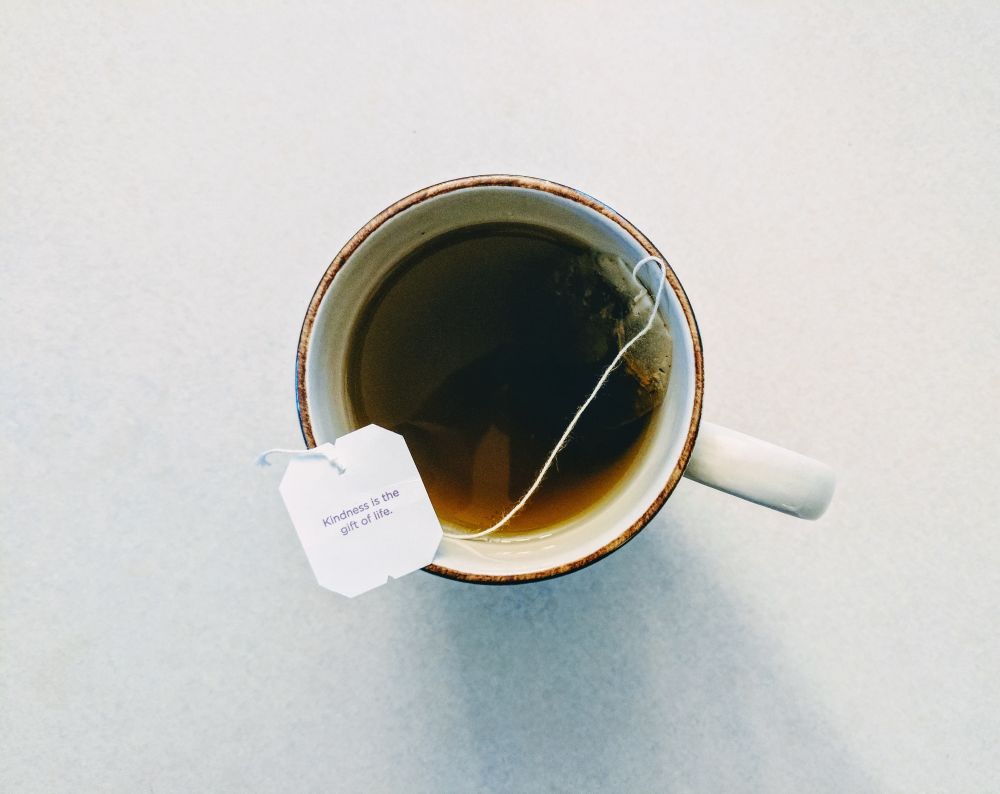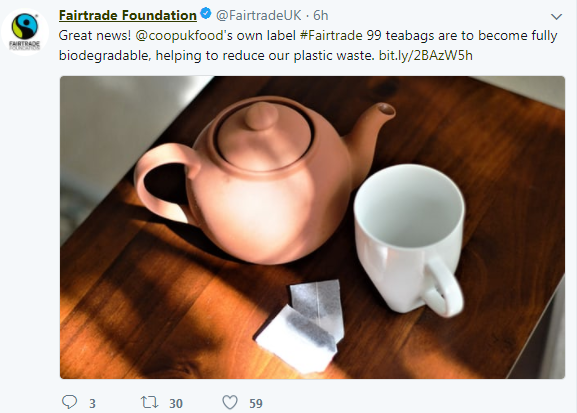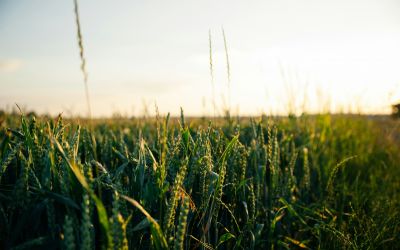Co-op plans to introduce a plastic-free tea bag
The British food retailer Co-op has announced that it is working on a ‘fully biodegradable paper tea bag’ to tackle the issue of plastic waste in its products.

The British food retailer Co-op has announced that it is working on a ‘fully biodegradable paper tea bag’ to tackle the issue of plastic waste in its products.
Co-op Food’s Chief Executive, Jo Whitfield, said that the new design is undergoing ‘rigorous testing’, but that it could be sold in stores by the end of the year.
The current use of small amounts of polypropylene is widespread in tea bags to help seal the leaves; the supermarket believes that its new method could help save nine tonnes of plastic per year from each household in the UK.
It is estimated that over 165 million cups of tea are drank in Britain every day and the vast majority, 96%, are made with a tea bag. This means a huge amount of non-recyclable plastic goes straight to landfill. In response, campaigners have so far promoted the use of loose leaf tea, or bags made from biodegradable corn starch, as an alternative.
Ms. Whitfield commented: “Many tea drinkers are blissfully unaware that the teabag from their daily cuppa is sealed using plastic. Even though it’s a relatively small amount, when you consider the six billion cups of tea that are brewed up every year in the UK, we are looking at around 150 tonnes of polypropylene – that’s an enormous amount of accumulated plastic waste that is either contaminating food waste compost collections or simply going to landfill”.
A spokesperson for the UK Tea and Infusions Association stated that the industry has been experimenting with non-plastic bags, but “those methods are costly” and could lead to price rises. The association argues that tea bags remain a valuable source of organic matter for use in food waste bins and compost heaps, with little trace remaining after six months.
The move by Co-op is part of its overall strategy, made last year, to ensure 100 percent of its packaging is recyclable. The supermarket has an initial, ambitious, target to recycle 80 percent of all products by 2020.
Environmental campaigners welcomed the announcement




